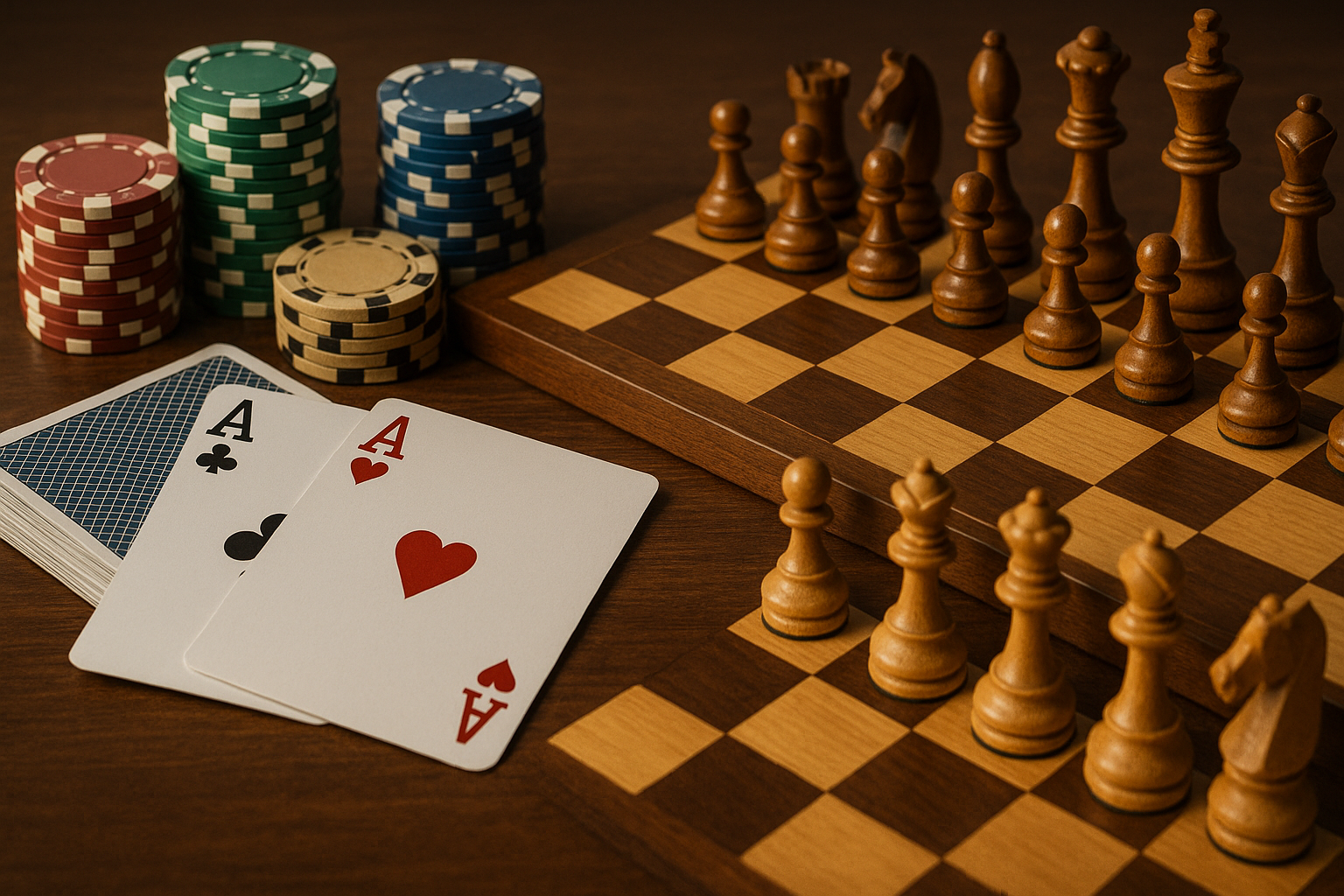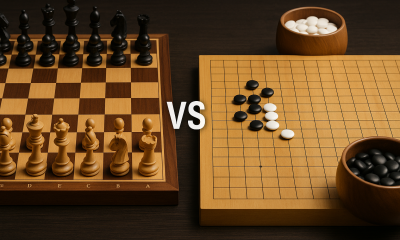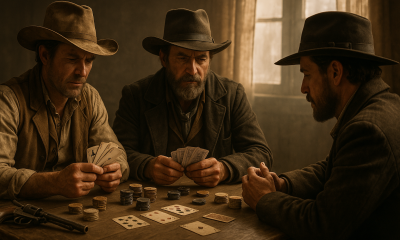Poker
Poker vs Chess: A Comparison of Strategy and Skill

Both poker and chess are deep strategy games with devoted communities, decades of theory, and world-class professionals. Yet they test very different cognitive muscles. Chess is a perfect-information, deterministic game of calculation, pattern recognition, and long-term planning. Poker (for instance, No-Limit Texas Hold’em) is an imperfect-information, stochastic game of inference, risk management, and psychology. Mastery in both demands rigorous study, but the variance in poker and the combinatorial clarity in chess lead to distinct paths of proven skill.
If you’ve read the contrast between chess and Go, check out Chess vs Go to see another side of strategic comparison.
1. Game Structure & Information
Perfect vs Imperfect Information
In chess, every piece and square is visible to both players—no hidden information. In poker, your hole cards and the order of community deals are hidden, creating uncertainty in decision-making.
Determinism vs Variance
Chess is deterministic: the same moves always yield the same outcome. In poker, randomness from card deals injects variance—so even perfectly played hands can lose.
Equilibrium & Exploitation
In poker theory, **Game Theory Optimal (GTO)** strategies provide a solid baseline, but real gains arise from exploiting opponents’ leaks. Guides like those at Upswing Poker teach how to blend GTO and exploitative play.
2. What Skill Looks Like
Core crossovers:
- Pattern recognition
- Strategic planning over time
- Calculation within constraints
- Emotional control and discipline
- Iterative study and feedback
Chess emphasizes precision and error minimization. Poker emphasizes Bayesian reasoning, range-based thinking, and decision-making under uncertainty.
3. Decision Processes
Chess: Tactics & Heuristics
Chess decision-making revolves around forced tactics—forks, pins, skewers, discovered attacks—and positional heuristics. A good historical overview of chess’s development is available on Chess.com’s history pages.
Poker: Odds, Equity & Ranges
Poker decisions use pot odds, implied odds, and fold equity. You put opponents on a range and estimate equity. Concepts like bluffing and balance are described in the article “Bluffing in Poker Explained.”
4. Time, Pressure & Dynamics
Chess uses fixed time controls (classical, rapid, blitz). Time trouble forces tradeoffs between depth and safety. Poker pressure arises from rising blinds, table dynamics, and endurance over long sessions.
5. Psychology & Opponent Modeling
In chess, psychological factors are secondary—efforts must stand on technical merit. In poker, psychology is central: image, tells, timing, and tilt are integral. Upswing’s strategy content covers these psychological elements.
6. Training Tools & Study Methods
Chess Training Stack
- Engine analysis (Stockfish, Leela Chess Zero)
- Opening databases & theory
- Tactical puzzle drills
- Annotated classics & endgames
Poker Training Stack
- Hand history review and tracking software
- Range analyzers / solvers (like those integrated in Upswing Lab)
- Stat tracking (VPIP, PFR, 3-bet stats)
- Mental game training, bankroll systems
7. Measuring Skill
Chess uses ratings (Elo/Glicko) that reflect performance. In poker:
- Cash games: measuring win rate in bb/100
- Tournaments: ROI, ITM rate, adjusted for field variance
- Large sample sizes are essential to reveal true edge
8. Luck, Variance & the Long Run
In poker, variance dominates short sequences; even good players lose in the short term. Chess offers less variance. Over extended play, poker skill surfaces—but only with good risk and bankroll management.
9. AI, Theory & Evolving Metas
Chess Engines & Evolution
Modern engines like Stockfish and Leela Chess Zero have advanced opening and endgame theory dramatically.
Poker Solvers & AI Strategy
Poker solvers generate baseline strategies and optimal frequencies. Many Upswing articles explain solver integration into serious study.
10. Professional Ecosystems
Chess supports title systems (GM, IM), tournaments, and streaming content. Poker’s ecosystem includes cash game pros, tournament grinders, staking deals, and a much steeper variance track.
11. Common Misconceptions
“Poker is luck” overlooks long-term edges. “Chess is memorization” ignores evaluation depth. “GTO is all there is to poker” neglects that exploiting humans is what makes money.
12. Crossover Lessons
- From poker → chess: risk consciousness, Bayesian updates, mental composure under uncertainty
- From chess → poker: structured thinking, rigorous calculation, clarity under simplification
13. Which Game Is Harder?
The answer depends on the dimensions:
- Pure calculation & error sensitivity: chess is harsher
- Variance, human complexity, income stability: poker is tougher
- Clear feedback & measurable progress: chess wins
- Long mental endurance under uncertainty: poker demands more
14. Practical Tips for Beginners
If new to chess: Focus on tactics, basic strategies, and essential endgames.
If new to poker: Learn hand ranges and preflop fundamentals. Try the poker strategy guide for early improvement.
15. Lessons Beyond the Table
Chess teaches structured foresight and cause & effect. Poker teaches adaptability in uncertainty and human inference. In life: sometimes all information is visible (chess); sometimes you must deduce (poker).
Conclusion
Chess and poker both embody strategy at high levels. Chess refines logic in deterministic realms; poker hones skill in probabilistic, adversarial environments. Studying both sharpens your reasoning and decision-making across contexts.
If you want a longer, SEO-optimized version or anchor links, I can generate that next.
Lloyd Kenrick is a veteran gambling analyst and senior editor at Gaming.net, with over 10 years of experience covering online casinos, gaming regulation, and player safety across global markets. He specializes in evaluating licensed casinos, testing payout speeds, analyzing software providers, and helping readers identify trustworthy gambling platforms. Lloyd’s insights are rooted in data, regulatory research, and hands-on platform testing. His content is trusted by players seeking reliable information on legal, secure, and high-quality gaming options—whether locally regulated or internationally licensed.
You may like
-


France Ponders Legalizing Online Casinos Amid Black Market Surge
-


Skill Games May Escape India’s Real Money Online Gaming Ban
-


Chess vs. Checkers: A Battle of Minds Across Generations
-


Chess vs Go: The Battle of Perfect-Information Giants
-


The Real World of Poker: How Pop Culture Shaped the Game
-


The Role of Poker in American Wild West Lore